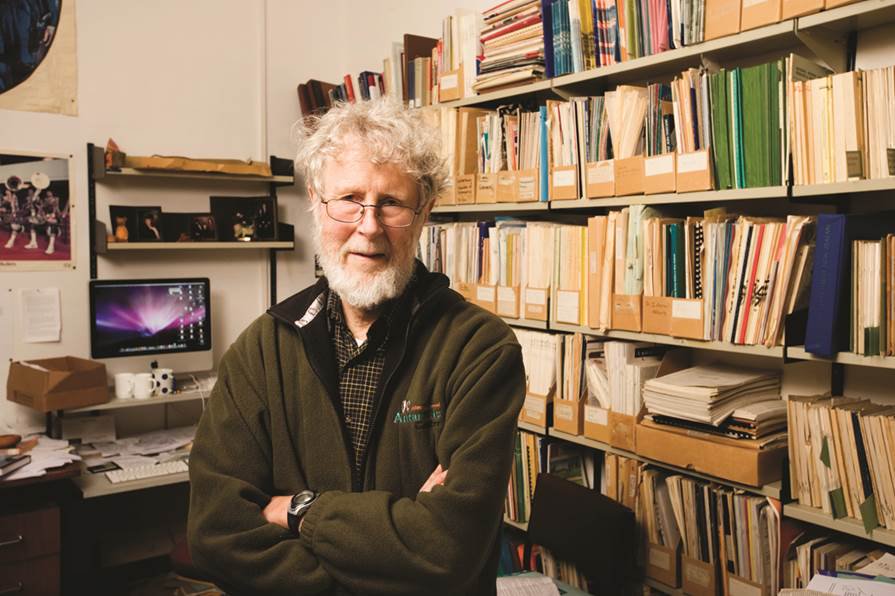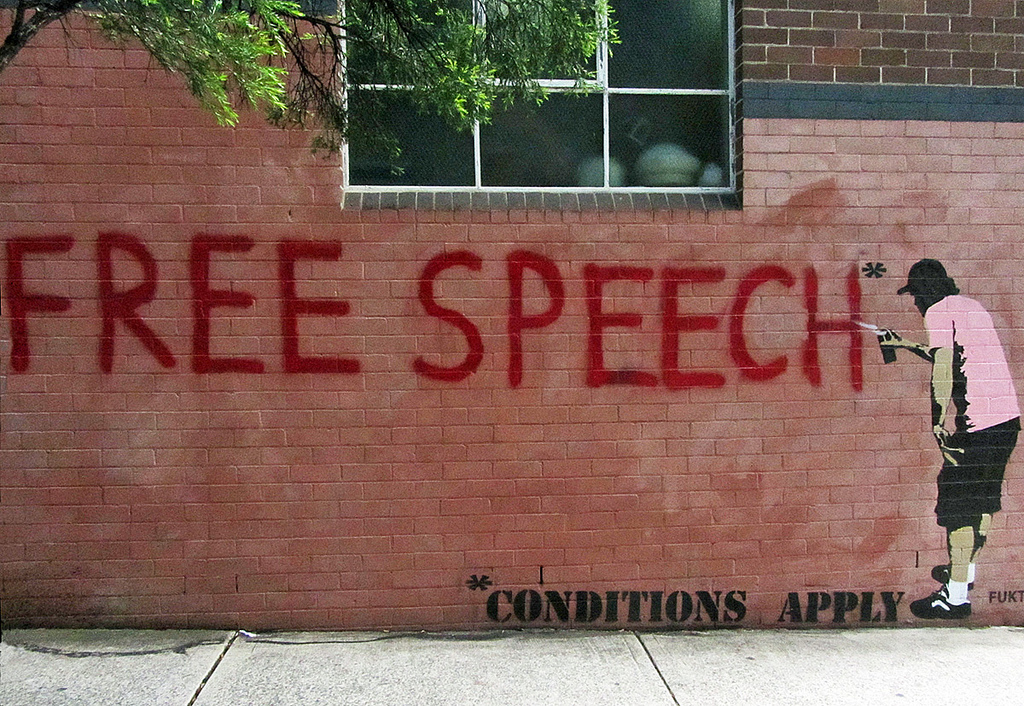Arthur Jensen
My Book Defending Free Speech Has Been Pulled
If upsetting students or staff or the public is a reason for banning speech, all such discussion is at an end.

I recently completed a book defending free speech. Emerald Press scheduled it for publication but then decided not to proceed. Here’s what it said about the book in Emerald’s September 2019 catalogue:
In Defense of Free Speech: The University as Censor
Author James R. Flynn, University of Otago, New Zealand
Synopsis: The good university is one that teaches students the intellectual skills they need to be intelligently critical—of their own beliefs and of the narratives presented by politicians and the media. Freedom to debate is essential to the development of critical thought, but on university campuses today free speech is restricted for fear of causing offence. In Defense of Free Speech surveys the underlying factors that circumscribe the ideas tolerated in our institutions of learning. James Flynn critically examines the way universities censor their teaching, how student activism tends to censor the opposing side and how academics censor themselves, and suggests that few, if any, universities can truly be seen as ‘good.’ In an age marred by fake news and social and political polarization, In Defense of Free Speech makes an impassioned argument for a return to critical thought.
I was notified of Emerald’s decision not to proceed by Tony Roche, Emerald’s publishing director, in an email on 10th June:
I am contacting you in regard to your manuscript In Defense of Free Speech: The University as Censor. Emerald believes that its publication, in particular in the United Kingdom, would raise serious concerns. By the nature of its subject matter, the work addresses sensitive topics of race, religion, and gender. The challenging manner in which you handle these topics as author, particularly at the beginning of the work, whilst no doubt editorially powerful, increase the sensitivity and the risk of reaction and legal challenge. As a result, we have taken external legal advice on the contents of the manuscript and summarize our concerns below.
There are two main causes of concern for Emerald. Firstly, the work could be seen to incite racial hatred and stir up religious hatred under United Kingdom law. Clearly you have no intention of promoting racism but intent can be irrelevant. For example, one test is merely whether it is “likely” that racial hatred could be stirred up as a result of the work. This is a particular difficulty given modern means of digital media expression. The potential for circulation of the more controversial passages of the manuscript online, without the wider intellectual context of the work as a whole and to a very broad audience—in a manner beyond our control—represents a material legal risk for Emerald.
Secondly, there are many instances in the manuscript where the actions, conversations and behavior of identifiable individuals at specific named colleges are discussed in detail and at length in relation to controversial events. Given the sensitivity of the issues involved, there is both the potential for serious harm to Emerald’s reputation and the significant possibility of legal action. Substantial changes to the content and nature of the manuscript would need to be made, or Emerald would need to accept a high level of risk both reputational and legal. The practical costs and difficulty of managing any reputational or legal problems that did arise are of further concern to Emerald.
For the reasons outlined above, it is with regret that Emerald has taken the decision not to publish your manuscript. We have not taken this decision lightly, but following senior level discussions within the organization, and with the additional benefit of specialist legal advice. I realize that this decision will come as a disappointment to you and hope that you will be able to find an alternative publisher with whom to take the work to publication.

If the book is sober and responsible, and if Emerald’s letter is correct, that poses a question: Does Britain have free speech? The above letter inspired me to change the title from “In Defense of Free Speech: The University as Censor” to “A Banned Book: Free speech and universities.” I hope that some publishers will contact me ([email protected]), so they can decide whether the book is worthy of publication and whether it runs afoul of any of the U.K.’s laws. If a journalist gets in touch, I can also send them the text for their eyes only. Let me give an outline of its contents.
The benefits of free speech
First, I give a general defense of free speech and criticize Jason Stanley and Jeremy Waldron insofar as their views differ from my own. I then use the case of Charles Murray being denied a platform at Middlebury College to show what students and staff miss out on when they refuse to hear or read those who offend them:
[My] dividends from reading Arthur Jensen, Richard Lynn, and Charles Murray: a plausible case that genetic differences between the major races are unlikely to confer an advantage or a handicap for desirable personal traits; a far better understanding of black America; a method that sheds light on personal development and leaves room for personal autonomy; an understanding of how differently males and females respond to formal education; a case that genetic differences between the genders seem cognitively trivial; a somewhat better understanding of the Chinese both at home and in America; a case for affirmative action that does not depend on racial bias; and most of all, a better understanding of the dynamics of a truly humane and egalitarian society.
This is the sad fate that the mob at Middlebury wanted to save me from. If I had not read these “discredited” scholars, I would still have a half-educated mind full of passion about race and gender and class and not much else.
A history of oppression
I then chart the history of the sins of universities against free speech with an emphasis on the McCarthy era (when conservatives barred or fired those they considered suspect), through the transitional period of Vietnam, to the present (when many on the “left” do much the same, particularly student protest groups). I detail the use of speech codes, and trigger warnings, and departments that have a party line (“Walden codes”) to discipline, expel, fire, and, above all, to defend indoctrination rather than education.
I include among the latter some African American studies departments that will not assign books or papers by conservative thinkers, some women’s studies departments that reject incontrovertible social science that runs counter to the official feminist ideology, and some (almost all) education departments that define their purpose as sending out “missionaries” to convert schools to their vision of an egalitarian society. I also provide a history of America’s schoolteachers, tracing how the low status of their profession has made the schools susceptible to adopting a missionary role.
Finally, I criticize the failure of universities to provide their students with the critical intelligence they need to be autonomous human beings and good citizens, despite the fact that they all state this as their chief objective.
Is this book worth reading?
Well, it will not be read unless it is published. To discuss a point made in Emerald’s letter, every reference to a person is documented by citations of published material or material in the public domain. At present, I can only cite the testimony of distinguished scholars. Some of the following were referees who sent their opinions to Emerald and some read it to give me an informal assessment.
This book is an education in itself…It is a brilliant and courageous book.
—Thomas Bouchard
That’s shocking [the rejection] even by the standards of contemporary restrictions on free speech, and especially ironic given the subject of your book.
—Steven Pinker
It is ironic that a book critical of restrictions on free speech should itself be rejected by a publisher who is worried about the book falling afoul of UK laws on incitement to racial hatred. In fact this is doubly ironic, given that the book is by Jim Flynn, after whom the “Flynn effect” is named, because the Flynn effect is all about the difference that culture and environment — rather than genes — makes to IQ scores. The draft I have seen has the potential to be an important and controversial work that will be very widely discussed.
—Peter Singer
I must admit I was shocked. Well, anyway, they have given you material for another chapter!
—John C. Loehlin
This is in-[expletive]-credible…Your book should not be considered even close to the fringes of politically correct discourse. If publishers are scared of your book, the censorship problem is a few orders of magnitude worse than I realized.
—Charles Murray
Homily
Discussing why free speech should extend to questions of race and gender necessarily involves presenting views (such as those of Jensen, Murray, and Lynn), if only for purposes of rebuttal, which upset those who believe that racial and sexual equality is self-evident. If upsetting students or staff or the public is a reason for banning speech, all such discussion is at an end. I end the book by quoting from George Orwell’s original preface to Animal Farm, which was itself rejected by Faber and Faber for being too critical of Stalin: “If liberty means anything at all, it means the right to tell people what they do not want to hear.”
Correction: An earlier version of this article was titled “My Book Defending Free Speech Has Been Banned,” and included a quote from Peter Singer which indicated that the book had been restricted. The title and quote have since been updated to reflect that the book was deemed too risky to be published, not that it was banned.







